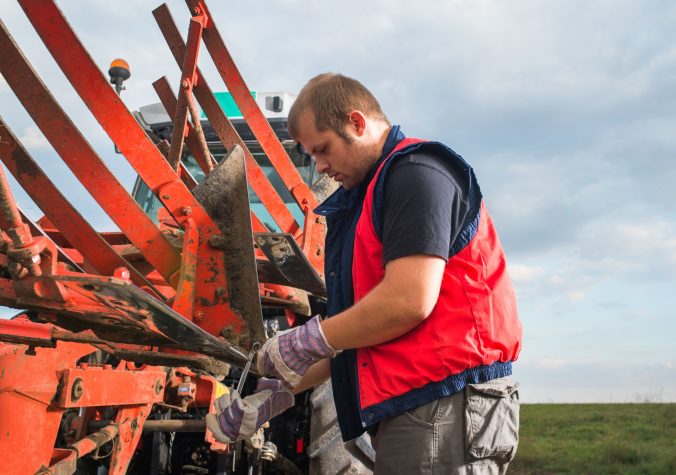
It’s the end of June, and there are still too many acres without crops in the ground. Our farm started in 1941, and according to my father’s impeccable record keeping, this is the latest time of year we have planted and the worst spring conditions we have seen on the farm.
The unpredictable weather and temperatures have created a variety of problems for farmers. Not all of us have our crops in, nor will all of us get everything planted this season.
While it depends on the situation, temporary layoffs should be avoided as best you can. With the low unemployment rate and difficulty in hiring talent, it is more costly to lay off employees for one to two months than it is to search, hire and train new employees when you do need them.
Whether you have downtime this summer from a lack of planting or you are battling the usual labor surplus between planting and harvest, there are a few ideas to maximize your human capital and accomplish much-needed tasks on the farm to keep everything progressing in a positive direction.
Low-Cost Improvement Projects
It might be time to reorganize the farm shop. As time passes, materials and tools can get misplaced and used parts stacked up. Before long, nothing is in its proper place, and it can be difficult to find the right parts. The disorganization of the shop costs both time and money when you can’t locate a part you know you have on hand. Before you even begin moving pieces and parts, establish a plan for what you want the shop to look like. Research ideas online for organization tips.
Although it isn’t practiced as much in agriculture, 5S shadow boards and organization techniques they use in large maintenance organizations could easily be implemented on the farm. If you have metal shelving, consider using magnetic labels so everyone knows where you would like things to go. Low-cost items such as commercial bin racks only cost $150-$300. Including your entire team in the project will help to get their buy-in and support to keep it more orderly going forward.
Education & Training
Extra downtime is the perfect time for employees to learn new skills. Whether you send your employees to classes, workshops, or seminars, they will appreciate the ability to expand their knowledge, and your farm will benefit from what they bring back to apply to the farm. Consider classes in supervising employees, lean agricultural practices, or on-farm safety. Perhaps it’s time to send them to more agronomy and crop science classes. If you are simply looking to add knowledge depth to your team, cross-training on the farm also has its benefits. It’s low cost and the training is on-site.
Landlord Relations
If you rent the land you farm, it’s critical to build upon your relationship with your landlord continually. Get in touch with your landlord to see what else they are looking for in the partnership. They might ask for simple improvements or changes such as getting ditches cleaned out or stone added to an entrance that your team could work on.
You could also utilize your team to host the landlords on-site. Take them on a tour of the farm, meet the team, go over where your farm is heading and answer any questions. The more interaction your landlords have with you, your team, and your farm, the more likely they are to feel connected to your operation, come to you with problems, and remain loyal when a neighboring farmer knocks on their door.
Connect with the Community
Volunteering in the community is a great way to connect and increase visibility. Hosting a community day shows what your farm has to offer. Also, consider having your team volunteer at a local event or partner with another agribusiness to host a dual event. An added bonus: Events are a great way to meet more people in your community who could be potential future on-farm employees.
The most important idea to maximize your team’s talents during downtime is actually very simple: Ask! Ask your employees about what they’d like to do. More often than not, they’re more willing to work if they get to choose their work. For example, if you have an employee with technology experience, they may be willing to help with the website and social media.
Keep the farm progressing, keep the morale up and get the team involved in low-cost initiatives that will benefit the farm for years to come.
Written by: Lori Culler, AgHires Founder/Owner
See more from the AG’s HR Coach here.





